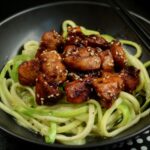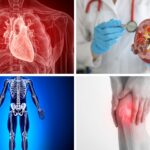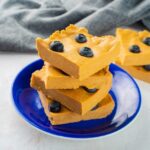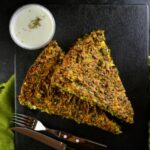Do Low Calorie Diets Work?
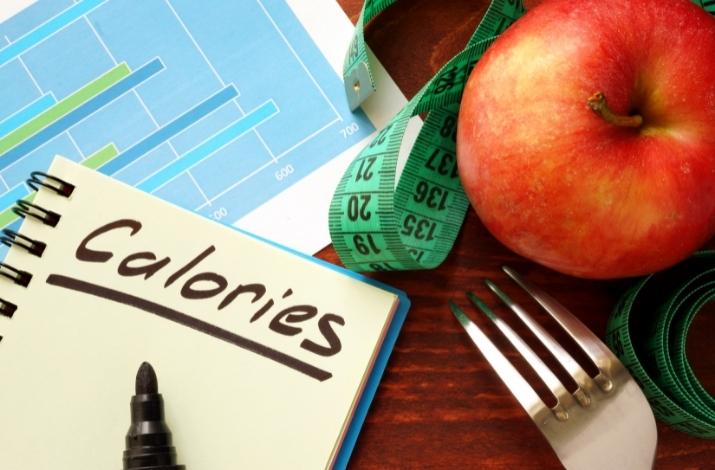
If you’ve ever had a conversation with someone about weight loss, chances are you’ve heard something along the lines of, “If you want to lose weight, you have to move more and eat less.” This method of dieting is known as low-calorie dieting, or CICO (calories in, calories out). Proponents of low calorie dieting figure out the number of calories they typically eat in a day and simply reduce it for weight loss. Online calculators seek to figure out a person’s metabolic rate and determine the formula needed to reach certain weight loss goals. If someone over-indulges, they’re instructed to work out a little more to balance out the calories. After all, CICO advocates say, weight loss is about creating a calorie deficit in the body and nothing more. The law of thermodynamics at work.
While this theory of dieting is deeply entrenched, it’s also deeply flawed.
A calorie is a unit of energy. The term was originally used to describe the amount of heat required to raise the temperature of a kilogram of water by one degree Celsius. In a laboratory setting, this convention makes perfect sense. In a complex organism, it doesn’t.
The CICO diet relies on the assumption that all calories are created equal, e.g., four hundred calories of donuts have the same impact on the body as four hundred calories of fish. Interestingly, some practitioners are coming to acknowledge that all calories do not offer the same value to the body, yet they continue to prioritize calorie counting as the means to achieving – and presumably maintaining – optimal weight.
At its core, the low calorie method treats the body as if it’s a machine, and fat, protein, and carbohydrates are all just different brands of batteries. This theory ignores the reality that each of these “batteries” or energy sources has a different effect on the body’s other systems.
Whenever we eat anything, our bodies start to work breaking it down, meaning that our metabolic “rate” increases. Studies have repeatedly shown that the body has to work harder to break down protein than it has to for carbohydrates (which convert to glucose in the body). This is known as the thermic effect of food [1]. If the body uses more energy to digest a steak than it does to digest an equal amount of calories in apples (let alone something like cake), obviously those two calories are not, in fact, equal.
This isn’t to say that calorie restriction is worthless for weight loss. Those who eat a calorie deficit will often lose weight, but this weight loss is rarely permanent and typically leads to the person gaining it back (and then some). This phenomenon is so common that it has a name: yo-yo dieting. One of the reasons for this rebound weight gain is that calorie restriction leads to almost constant hunger, and “hunger always wins.” Reality TV has made weight loss challenges famous, where the contestants live in this exact state of moving more and eating less, but there’s a reason these shows don’t host reunions. Keeping the weight off is the exception, not the rule [2,3].
For all of its flaws, where the CICO diet most leads people astray is in ignoring how different energy sources impact hormones.
Contrary to popular belief, as a person loses weight, their metabolic rate actually slows. Simply put, a smaller body doesn’t have to work as hard to function as a larger body does [4]. Compounding this problem is the fact that, as weight is lost, appetite actually increases over the former baseline [5]. Thus, not only does someone focusing on calories have to remain at a permanently lower caloric intake to maintain that smaller weight, they have to do so even hungrier than before.
In contrast, those who eat a low carbohydrate or ketogenic diet focus on macronutrients. Fat by itself has no impact on insulin, while protein has a modest effect. Additionally, both protein and fat are known to lead to greater satiety and fewer cravings [6,7]. Carbohydrates, on the other hand, have a strong impact on insulin, with simple carbs (e.g., sugar, bread, cold cereal) creating a greater spike than more complex carbs do (e.g., oats, quinoa, leafy greens). When we eat starchy foods, the body releases insulin, which tells every cell in the body to store energy and waste nothing. Furthermore, because insulin wants to store everything that comes in, metabolic rate slows. On the other hand, when insulin is low through carb-restriction or intermittent fasting, for example, metabolism increases. The cells in the body can break down stored energy and use its own fat stores for fuel.
While calories do play a role in weight management, their importance has been drastically overblown. Focusing on the source of your nutrition and the impact that macros have on your body is key to sustained weight loss and improved health.
References
- Reed GW, Hill JO. Measuring the thermic effect of food. Am J Clin Nutr. 1996 Feb;63(2):164-9. doi: 10.1093/ajcn/63.2.164. PMID: 8561055.
- Hall KD, Kahan S. Maintenance of Lost Weight and Long-Term Management of Obesity. Med Clin North Am. 2018 Jan;102(1):183-197. doi: 10.1016/j.mcna.2017.08.012. PMID: 29156185; PMCID: PMC5764193.
- Fothergill E, Guo J, Howard L, Kerns JC, Knuth ND, Brychta R, Chen KY, Skarulis MC, Walter M, Walter PJ, Hall KD. Persistent metabolic adaptation 6 years after “The Biggest Loser” competition. Obesity (Silver Spring). 2016 Aug;24(8):1612-9. doi: 10.1002/oby.21538. Epub 2016 May 2. PMID: 27136388; PMCID: PMC4989512.
- Rosenbaum M, Hirsch J, Gallagher DA, Leibel RL. Long-term persistence of adaptive thermogenesis in subjects who have maintained a reduced body weight. Am J Clin Nutr. 2008;88(4):906–912.
- Polidori D, Sanghvi A, Seeley RJ, Hall KD. How Strongly Does Appetite Counter Weight Loss? Quantification of the Feedback Control of Human Energy Intake. Obesity (Silver Spring) 2016;24(11):2289–2295.
- Halton TL, Hu FB. The effects of high protein diets on thermogenesis, satiety and weight loss: a critical review. J Am Coll Nutr. 2004 Oct;23(5):373-85. doi: 10.1080/07315724.2004.10719381. PMID: 15466943.
- https://www.ncbi.nlm.nih.gov/books/NBK53550/
This article is for informational and educational purposes only. It is not, nor is it intended to be substitute for professional medical advice, diagnosis, or treatment and should never be relied upon for specific medical advice.









